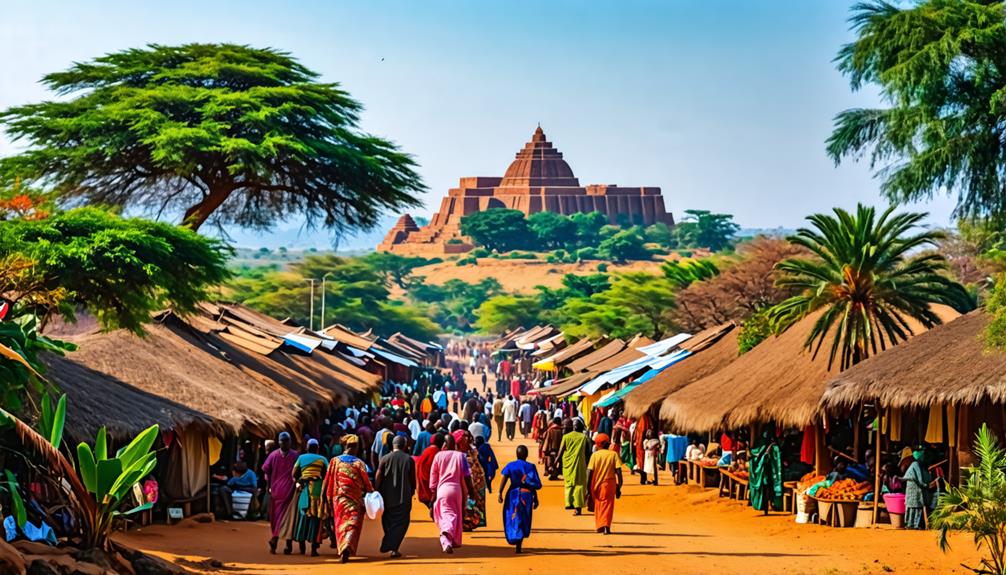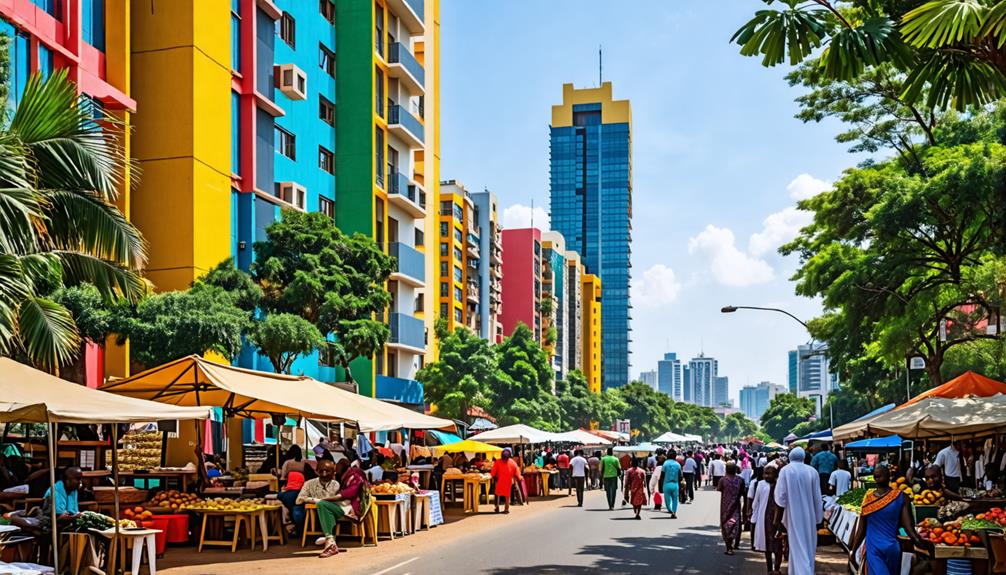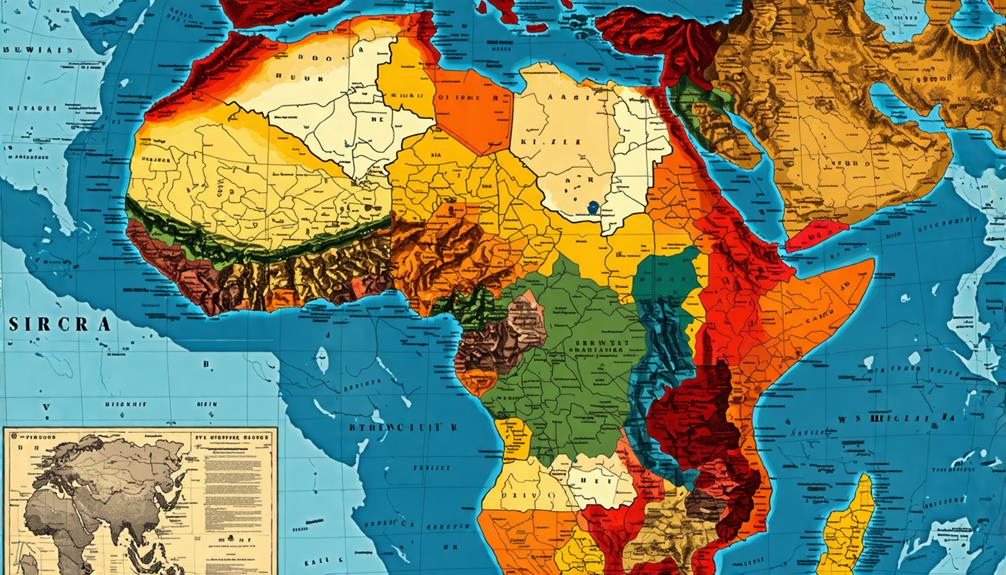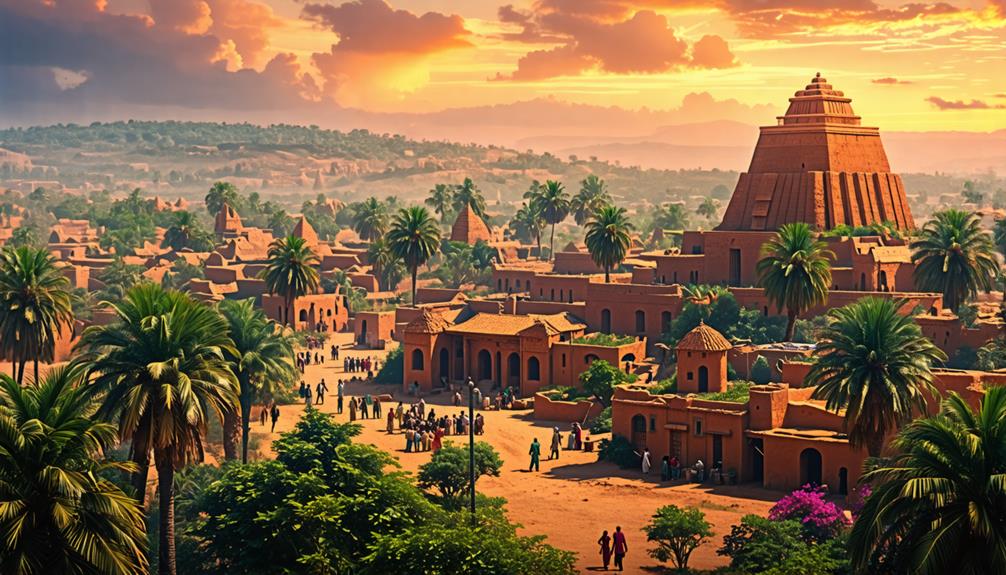Imagine a world where the European powers never carved up Africa for their own gain. In this alternate reality, the diverse cultures and kingdoms of the continent would have had the chance to develop on their own terms.
But how would this have changed the course of history? Without colonialism, would Africa have become a thriving, unified continent or would it have faced different challenges and conflicts?
Preserved Cultures and Kingdoms

In an alternate timeline where African cultures and kingdoms remained untouched by European colonization, the continent's history would have unfolded differently.
One possibility is that kingdoms like the Ashanti, Zulu, and Kongo would have continued to thrive, preserving their unique customs, languages, and traditions.
It could have meant a more authentic evolution of African societies, shaping their own destinies without external interference.
However, it's important to note that this scenario doesn't preclude the possibility of colonization by other powers at a later date, potentially leading to similar disruptions and challenges faced by African nations in our timeline.
Altered Colonial Influence
If the Scramble for Africa hadn't occurred, some theories suggest that indigenous governance systems may have remained more intact, with traditional economic practices continuing uninterrupted. Cultural identities and languages could have been better preserved as well.
However, it's important to note that even without the Scramble, European influence would have still made its way into Africa through trade and other interactions. It's possible that colonial powers or other foreign entities could have attempted to exert control over parts of Africa at a later date, leading to some of the same outcomes.
Ultimately, the extent to which Africa would have been different without the Scramble is a complex question with many possible answers. It's up to readers to consider the various factors at play and draw their own conclusions about this alternate historical scenario.
Economic Development Reimagined

One theory is that without the Scramble for Africa, the continent's economic development would have been more organic and locally-driven, based on traditional trade networks and resources. Indigenous knowledge could have potentially guided more sustainable growth.
It's possible that if colonization had occurred later by different powers, the outcomes may have been similar. However, the specific impacts would depend on the nature and timing of such colonization efforts.
Ultimately, while a different path for Africa's economic trajectory is conceivable, it's uncertain whether it would have been sufficient to withstand modern globalization pressures. The absence of the Scramble could have resulted in more diverse regional economies, but the ability to integrate into the global economy would have remained a significant challenge.
Shifting Power Dynamics
In an alternate timeline without the Scramble for Africa, the geopolitical landscape on the continent would have likely developed along different lines. Some historians theorize that indigenous power structures and pre-colonial relationships would have played a more significant role in shaping the continent's political and social dynamics.
African nations might've had a greater opportunity to forge their own alliances and rivalries based on historical ties and regional interests. This could have led to a more assertive role for African countries in global affairs, potentially shifting the balance of power and transforming Africa's standing on the world stage.
It's worth noting that while the Scramble for Africa didn't occur in this alternate scenario, it's possible that similar colonial endeavors could have taken place at a later date by other global powers. However, the specific outcomes and consequences of such events would depend on the historical context and the actions of the nations involved.
Alternate Geopolitical Landscape

In an alternate historical scenario where Africa's political landscape developed organically based on its diverse cultures and kingdoms, the continent would look vastly different. One theory is that strong regional powers like Ethiopia, Ghana, and South Africa would have emerged as leaders in their respective regions, shaping the geopolitical dynamics of the continent.
It's possible that these nations would have forged alliances, fostered intra-African trade, and cooperated as equals on the global stage, potentially leading to a more balanced and self-determined Africa. However, it's also plausible that rivalries and conflicts between these powers could have arisen, adding complexity to the continent's political landscape.
While this specific scenario didn't materialize historically, it's worth noting that similar ideas of Pan-Africanism and African unity have been explored by various leaders and thinkers throughout the 20th and 21st centuries, albeit in different forms and contexts.
Conclusion
You might wonder, what if the roughly 10,000 distinct ethnic groups in Africa had been left undisturbed?
It's impossible to know for certain, but you can imagine a mosaic of thriving cultures, each carving its own path.
Trade could've flowed along ancient routes, growing organically.
Over time, Africa's weight on the global stage would likely increase.
Colonial powers might still come knocking, but they'd be facing a continent standing on its own two feet.

Leave a Reply